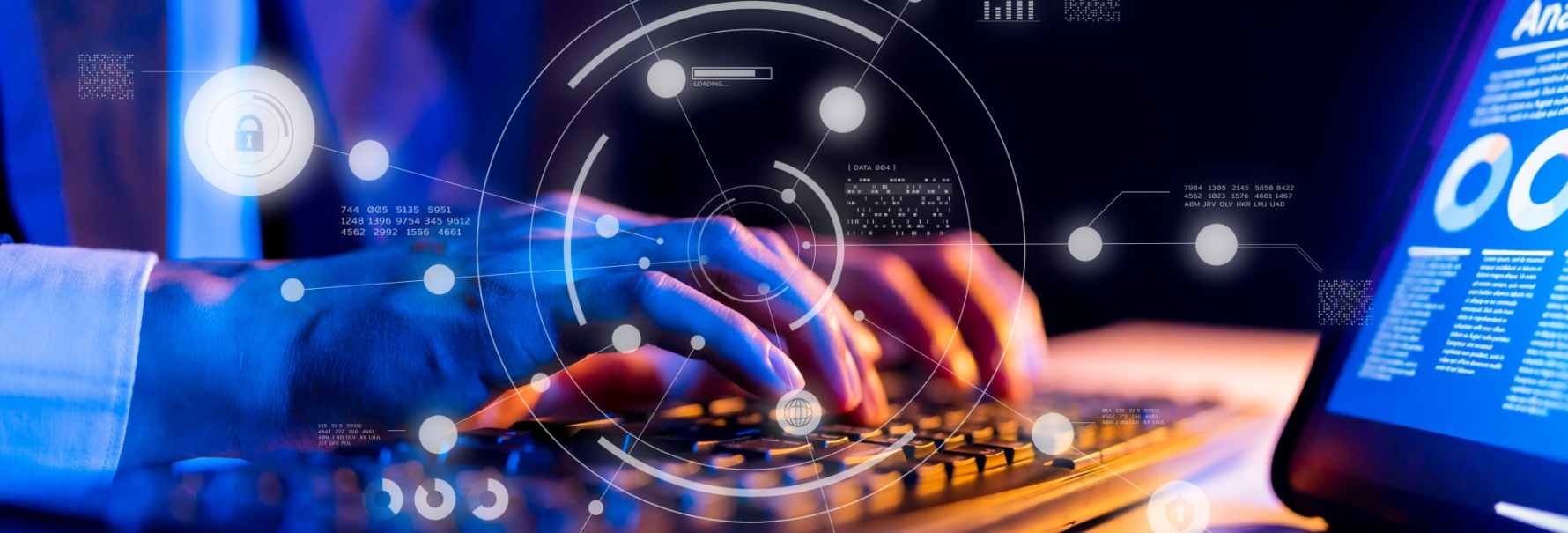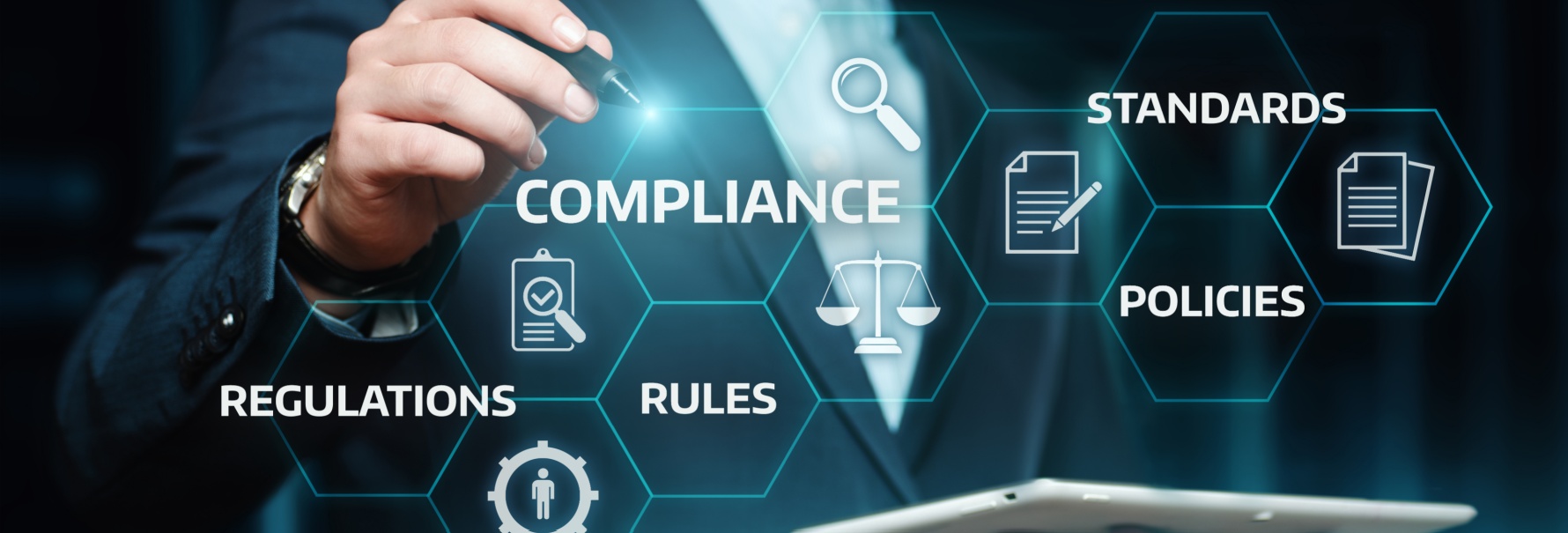Cyber Security Risks of the Metaverse
2023-05-25
The internet is moving in a new direction. A number of technological advances have been made with an emphasis on the blockchain, termed Web 3.0. So far, we have seen this manifest in ideas such as decentralised networks, cryptocurrencies and metaverses, which all support new platforms for people to interact with businesses and each other. As more people enter the metaverse, whether it's through virtual reality or other forms of immersive technology, there are a growing number of cybersecurity risks that individuals and businesses need to be aware of.
Trends
The metaverse concept has recently exploded in popularity. Here are some statistics on the popularity of metaverse search terms over time, based on data from Google Trends:
- "Metaverse" - This search term rose sharply in late 2021 and reached its peak popularity in January 2022. The term has since declined in popularity but remains significantly more searched for than it was prior to 2021.
- "Virtual reality" - This search term has been relatively stable in popularity over the past five years, with a slight uptick in interest in 2020 and 2021.
- "Augmented reality" - This search term has also been relatively stable in popularity over the past five years, with a slight uptick in interest in 2020 and 2021.
- "Blockchain games" - This search term has been on an upward trend since 2020 and reached its peak popularity in March 2021, after which it has declined slightly but remains significantly more searched for than it was prior to 2020.
- "Play to earn" - This follows the same trend as "metaverse", rising sharply at around the same time in late 2021 to early 2022.
Overall, these statistics suggest that there has been a growing interest in the metaverse and related technologies over the past few years, with some hitting very high peaks in 2021 and 2022. This coincides with a period of rapid development in the cryptocurrency and blockchain world, spurred on by increased levels of investment during the height of the COVID-19 pandemic.
Risks, attacks and exploits
One of the biggest risks associated with the metaverse is that cybercriminals could use the metaverse to steal sensitive data or commit fraud. For example, hackers could use phishing scams to trick people into giving away their login details or other personal information. They could also use malware to infect virtual environments or steal data from within them. A successful attack could lead to a range of consequences, from financial losses to the theft of valuable virtual assets.
- In 2018, a hacker was able to manipulate the value of NFTs (non-fungible tokens) he had purchased from Ethereum-based P2E (play-to-earn) project "CryptoKitties" by executing code which edited the number of 'likes' his NFTs had on the popular NFT marketplace MetaMask. Investors were fooled and purchased the hacker's NFTs for far more than their worth.
- In 2020, a group of hackers known as "Lizard Squad" targeted the popular virtual reality platform VRChat with a distributed denial-of-service (DDoS) attack. The attack caused the platform to become unavailable for several hours and disrupted the experience of thousands of users.
- In 2021, researchers discovered a vulnerability in the Decentraland platform that could have allowed hackers to take control of the virtual world and steal assets from users. The vulnerability was related to the platform's governance system, which allows users to vote on changes to the virtual world's rules and policies.
- In 2022, numerous reports surfaced of virtual real-estate on SandBox being stolen through investors clicking phishing links, which gave hackers access to their MetaMask accounts. The hackers were then able to steal all the user's digital assets worth tens of thousands of dollars.
With new technologies being rapidly rolled out, sometimes vulnerabilities are not noticed in time before being discovered and exploited by bad actors. The above examples demonstrate the real-world risks that exist within the metaverse and highlight the need for individuals and businesses to take cybersecurity seriously in these virtual environments.
In addition to these risks, there are also concerns about privacy in the metaverse. As people spend more time in virtual environments, they may unwittingly give away sensitive information about themselves or their activities. Facebook, Google and many other companies have received criticism for their misuse of personal data.
Staying safe
To address these risks, individuals and businesses need to know how to protect themselves. This includes:
- using strong passwords;
- keeping software and security systems up-to-date;
- being cautious when sharing personal information online;
- it also means using encryption and other security measures to protect sensitive data and assets within the metaverse.
For tips and tricks, refer to our other articles to learn about cyber hygiene, or password security.
As the metaverse continues to evolve, it's likely that new cybersecurity risks will emerge. However, by staying informed and taking proactive steps to protect themselves, individuals and businesses can minimize their exposure to these risks and enjoy the benefits of this exciting new technology.
Sources:
https://trends.google.com/home
https://hackernoon.com/how-i-beat-cryptokitties-f9aa71c03c87
https://www.techradar.com/news/vrchat-hit-by-massive-ddos-attack
https://www.infosecurity-magazine.com/news/decentraland-crypto-game-suffers/
https://www.cnbc.com/2022/05/26/cybercriminals-target-metaverse-investors-with-phishing-scams.html
The information contained in this article is provided for informational purposes only and does not constitute professional advice and is not guaranteed to be accurate, complete, reliable, current or error-free.

Related news

Italian convenience giant CONAD hit by Lynx ransomware
2025-02-07Italian retail chain CONAD was hit by the Lynx ransomware group on November 2024. Despite the breach, CONAD's immediate defensive measures successfully protected customer data. The article investigates on the tactics of Lynx, a Ransomware-As-A-Service group, and provides insights on how businesses can strengthen their cybersecurity defences.
Read more
Mind the Gap: Understanding Cybersecurity Gap Analysis
2025-01-10A cybersecurity gap analysis is a process used in organisations to evaluate the organization’s current defences, identifies vulnerabilities and weaknesses in the company security framework, and guides improvements, helping businesses prioritize risks and enhance defences. It’s an essential step in building a compliant security framework and staying ahead of evolving cyber threats.
Read more
What Trump's Re-Election Means for US Data Privacy
2024-12-11Donald Trump’s re-election brings new debates about data privacy, AI regulation, and cybersecurity. This article evaluates his policies, from TikTok to encryption, and their possible effects on US citizens and innovation.
Read more
Dox Gangs Run Rampant, Victims Exposed for Life
2024-08-30Doxxing-as-a-Service (DaaS) is now a real and genuine threat that people need to be aware of, as it has become cheaper and simple to hire the service of a doxing group. DaaS enables identity fraud, spear phishing, malware deployment and even personal endangerment of its victims. In this article, we take a look at the types of DaaS services now on offer, and discuss ways that you may be able to protect yourself or mitigate the damage done by a dox.
Read more
Law Abiding Netizens: How Legislation Can Counter Cybercrime
2025-01-17Cybercrime threatens global economies, with losses expected to hit $10.5 trillion by 2025. This article explores how the EU leads the global fight against cybercrime threats through legislation like GDPR and DORA, setting global standards for data protection and cybersecurity.
Read more
Gazavat/Expiro Malware Spotted in Africa after Decade-Long Disappearance
2024-11-15Resurgent Expiro malware is spreading in Africa, leveraging advanced techniques to evade detection and steal sensitive data. Learn prevention and mitigation rules for consumers and business.
Read moreContacts
Let's talk
Please fill in the form below (fields with * are mandatory) and we will respond to your request as soon as possible!